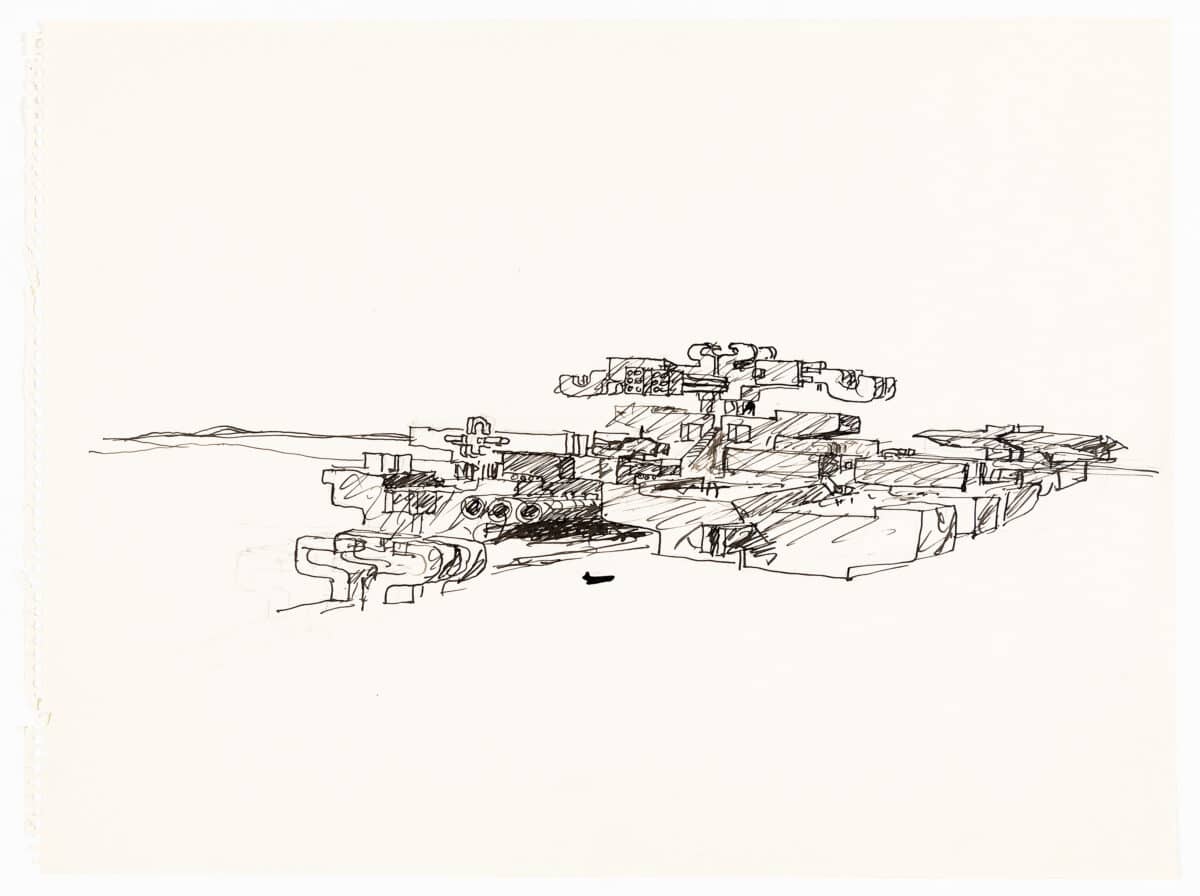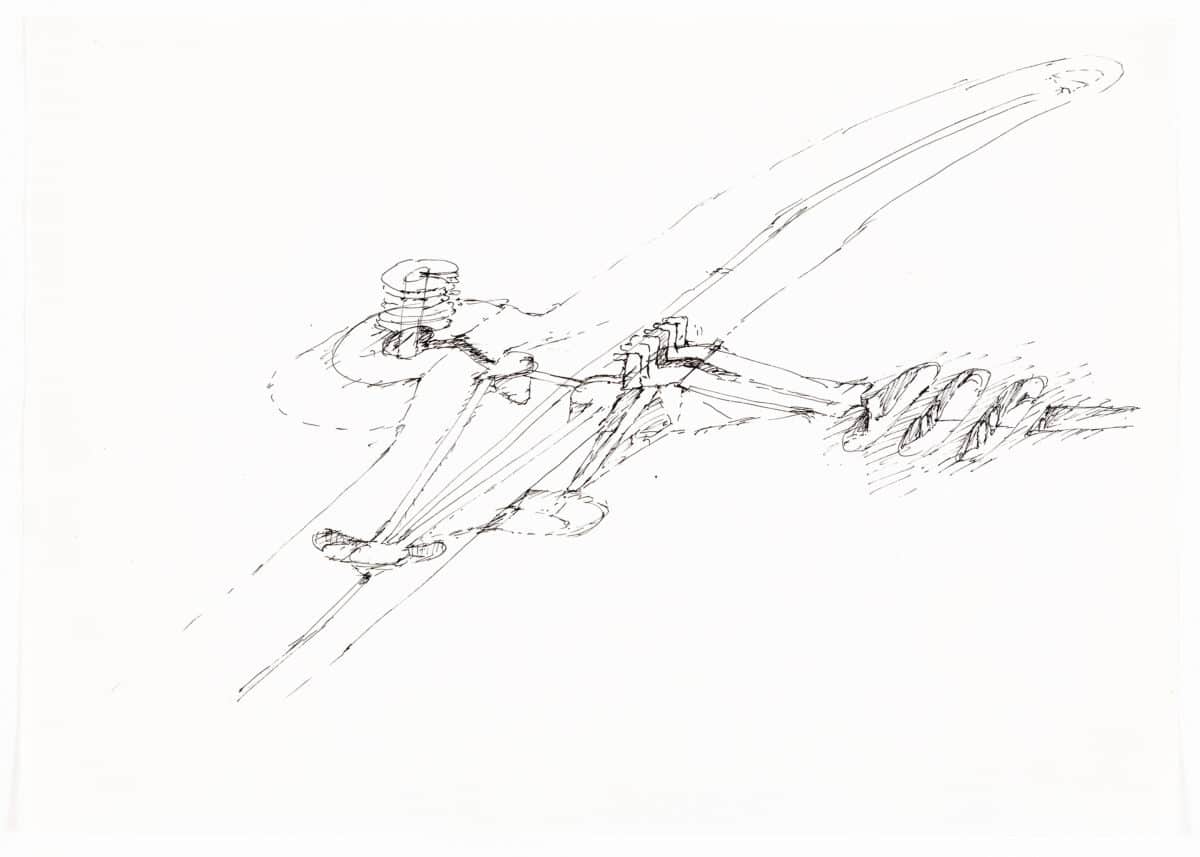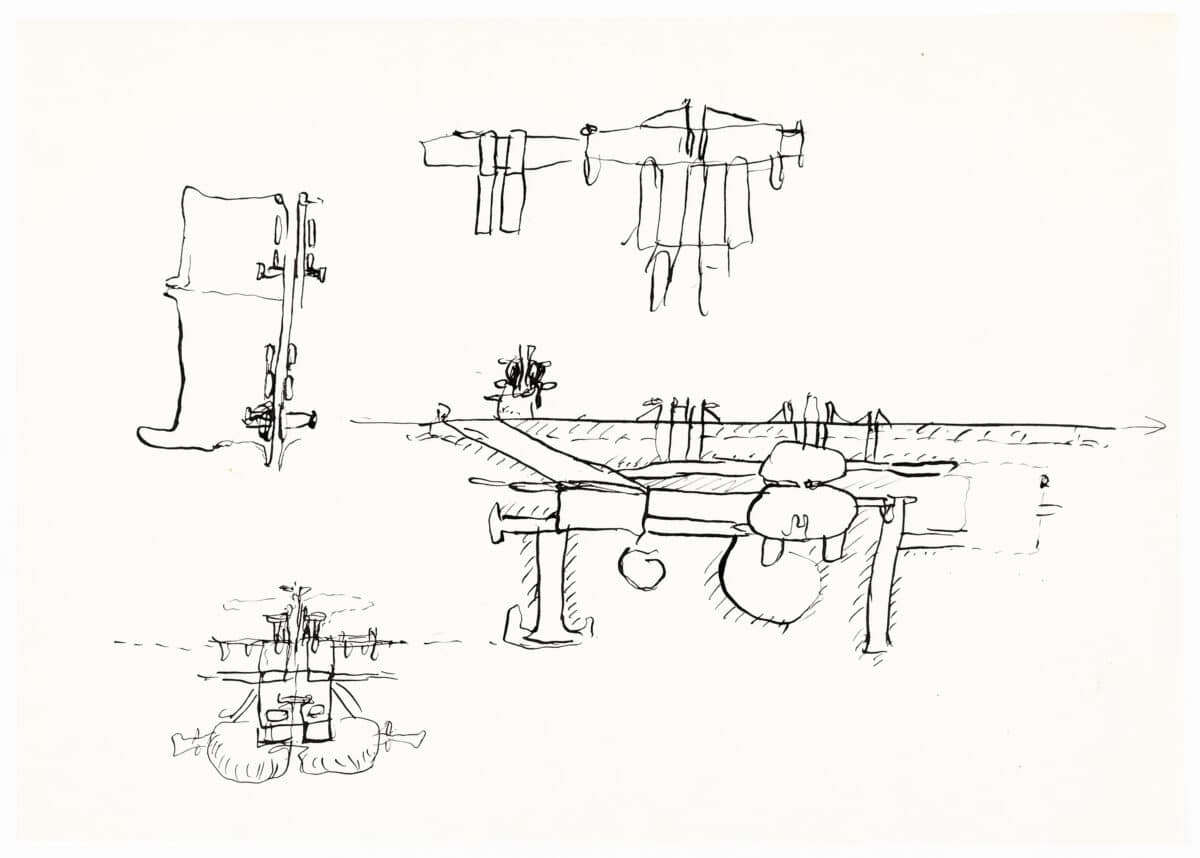Begin again. Fail Better: Pichler and Hollein
This text by Matt Page will be included in the exhibition catalogue for Begin again. Fail Better: Preliminary drawings in architecture (and art). The exhibition opens on the 31st May 2024 at the Kunstmuseum Olten, and includes nearly 100 drawings from the Drawing Matter Collection. More information about the exhibition can be found here.

What constitutes failure when an architectural project is never intended to be executed? If we evaluate success by comparing a building against its author’s intentions—or by how we experience it—projects that never make the jump from the imagined reality of the drawing to the outside world leave us with a quandary. The drawings for imaginary cities by Hans Hollein and Walter Pichler operate within this context. They are a sort of oxymoronic drawing that is architectural and yet not architecture. Hollein later described himself as ‘a sculptor much more than an architect’ [1]when reflecting on his work in the early 1960s, and Raimund Abraham, with whom Hollein and Pichler worked closely, framed their projects from the period in literary terms, calling them ‘visual poems’, intentionally autonomous from buildable projects, serving instead as provocations to the conventions of architecture. [2]


In these three drawings, selected from a series of several dozen sketches, the city structures float in space with a sense of indeterminacy. In two of them, there is a subtle suggestion of a non-specific landscape, but in the third the drawings appear like moments of thought captured by the boundary of the page. In other examples, Pichler and Hollein seem to reach more conclusive points; loose sketches become hard-line axonometric or isometrics, or in Pichler’s case sculptures/maquettes, which are sometimes fed back into imaginary landscapes through collage.
The impossibility of escape from their imagined worlds—because of the limitations of building and the intentional rejection of it—might suggest that these projects can never fail; they never fully leave the febrile beginning stage of the project in which anything is possible, never having to compromise between drawn idea and reality. Perhaps this is also their failing: paying the cost of limitless potential with the denial of the satisfaction a conclusion can bring.
Notes
- ‘Hans Ulrich Obrist in Conversation with Hans Hollein’, E-Flux Journal, 66 (2015), <https://www.e-flux.com/journal/66/60777/in-conversation-with-hans-hollein/> [accessed 3 May 2024].
- SCI-Arc Media Archive, Raimund Abraham (November 3, 1982), online video recording, YouTube, 24 September 2017, <https://www.youtube.com/watch?v=vH5QlfMJN30> [accessed 3 May 2024], 21:56–28:17.
